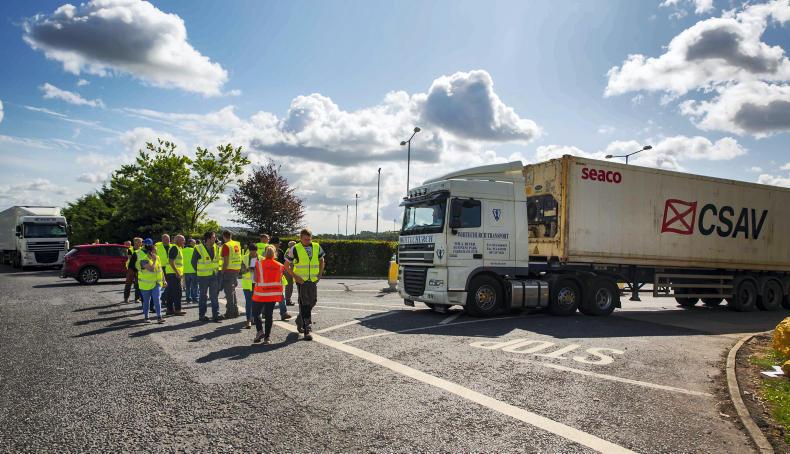The last seven days have seen IFA presidential candidate Tim Cullinan launch a scathing verbal attack on opponent Angus Woods. It had seasoned observers struggling to recall as personal a premeditated comment.
They have also seen leading Beef Plan Movement members present two separate producer organisations, seemingly in open opposition to each other.
For good measure, the Independent Farmers (Mk II) staged a protest at Bord Bia head office on Friday. Meanwhile, “individual farmers”, who insist that they are not an organisation, are organising a tractor protest in Dublin.
The first question on most lips is surely: “What the hell is going on?” The formerly fairly ordered world of farmer representation is undergoing a convulsive revolution. The prevailing mood is hostile, with anger and suspicion of not just processors but also State agencies.
Meanwhile, the efforts of established farmer organisations are dismissed as useless, or worse still, in collusion.
All the newest groups represent beef farmers, but the Irish Natura and Hill Farmers (INHFA) the Irish Grain Growers (IGG) and the Irish Farmers with Designated Land (IFDL) all emerged in 2014-15 for other sectors.
Meanwhile, the CAP budget is about to be cut, and farming is in the firing line for its carbon footprint
Farmers have reason to be angry and fearful. Their incomes are static or falling, with the cost of living leaving them behind as second-class citizens. The bar is being raised as to the level of efficiency, of standards, and of traceability. And traceability means paperwork.
Meanwhile, the CAP budget is about to be cut, and farming is in the firing line for its carbon footprint.
It’s easy to blame the IFA for not making the Minister force the European Commission to fix all this. In reality, it’s not that simple.
It mightn’t be easy to sell this kind of achievement, but anyone watching the rugby on Saturday will have seen that if the scrum doesn’t hold, annihilation can follow
If it were, the beef protests would have fulfilled predictions of prices north of €4/kg by now, instead of a static price and an increasing backlog of cattle.
Many times, the success of the established farm organisations was to prevent bad stuff from happening, be that the reduction of funding, new restrictions on farming, or another layer of red tape dreamt up by the bureaucrats in Brussels. It mightn’t be easy to sell this kind of achievement, but anyone watching the rugby on Saturday will have seen that if the scrum doesn’t hold, annihilation can follow.
First steps
So what is the best way forward? Perhaps it’s time for the main farm organisations to take a lead. A forum – let’s call it the New Ireland Farmers Forum – is needed. It should happen prior to the upcoming, difficult, CAP negotiations.
Differences will always exist, particularly between sectors, but the initial focus should be on agreeing where agreement is possible. Similarly, this group could agree a common platform for large parts of the Beef Taskforce agenda.
They could also agree to a review – not a witch hunt – of the operations of Bord Bia, Ornua, and Teagasc, to help restore farmer confidence in these institutions, and clear up some of the damaging accusations being circulated.
The IFA is still by far the largest farm organisation in terms of membership and resources
This format succeeded during the first halting steps that led to peace in Ireland – the New Ireland Forum was followed by the Anglo-Irish agreement, the Downing Street Declaration and ultimately the Good Friday Agreement.
The IFA is still by far the largest farm organisation in terms of membership and resources, and has the broadest policy platform. It could claim that it is the Irish farming forum, and no further forum is needed.
But we are in dangerous times for farming, and the current noise of disparate voices is confusing.
The voices calling for Irish farming to be scaled back for environmental reasons are growing louder and sense momentum
It’s confusing for the public who are not just food consumers, but as taxpayers fund farm schemes.
It’s also confusing for public representatives, who are being bombarded with farmer representation. Meanwhile, the voices calling for Irish farming to be scaled back for environmental reasons are growing louder and sense momentum.
Farmers need to speak with one voice on the big issues, we can then argue about the details.






 This is a subscriber-only article
This is a subscriber-only article










SHARING OPTIONS: